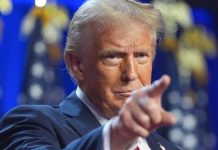The European Union will be ready as of July to implement a series of tariffs it seeks to impose on imports from the United States to compensate Washington’s own duties on European metal export.
Maros Sefcovic, the vice president of the European Commission, said on Wednesday at a news briefing that the tariffs will be concluded in coordination with the EU member states “before the end of June.”
“It is a measured and proportionate response to the unilateral and illegal decision taken by the US to impose tariffs on the European steel and aluminum exports which we regret,” said the former Slovak prime minister, adding that the new duties would “start applying in July.”
In March, the administration of US President Donald Trump decided to restrict the import of steel and aluminum from the EU.
The EU’s hit-list for tariffs targets typical American products, including blue jeans, motorbikes and whiskey. The move is likely to offset Washington’s decision to impose 25-percent tariffs on steel and 15-percent tariffs on aluminum. Trump says the decision had to be made to address what he claims to be national security concerns.
The EU had readied the list of American products subject to tariffs in March but said at the time that the imposition would be halted to see whether Trump would grant the EU a permanent exemption from the metal tariffs.
The White House announced last week that it would go ahead with the plan, showing that there would be no extension to the two-month exemption given to the Europeans.
Steel coils lay in a yard at ArcelorMittal Dofasco steel plant in Hamilton, Mexico and Canada are among Washington’s other allies that have announced their own measures in response to the Trump tariffs, which came into effect on June 1. China, the main target of the metal tariffs, also adopted its own countermeasures.
The EU member states should now ratify the proposal for the imposition of tariffs and decide what direction similar countermeasures should take in the future. Some EU countries like France and the Netherlands have sought a tough line against Washington while others like Germany have urged a different approach and one that could resist Trump’s “America First” policies












